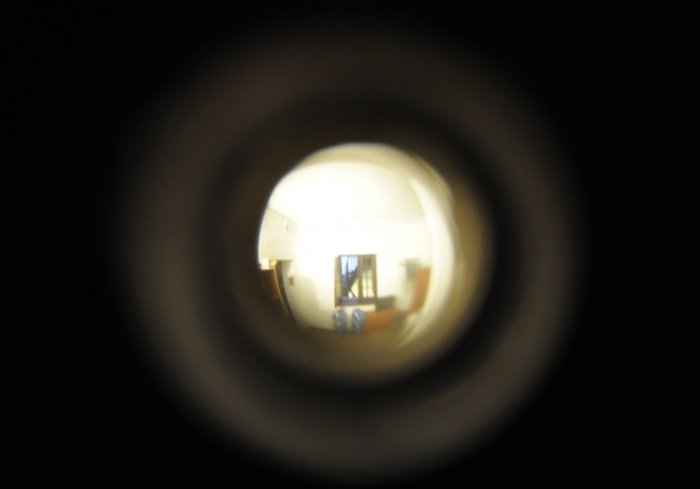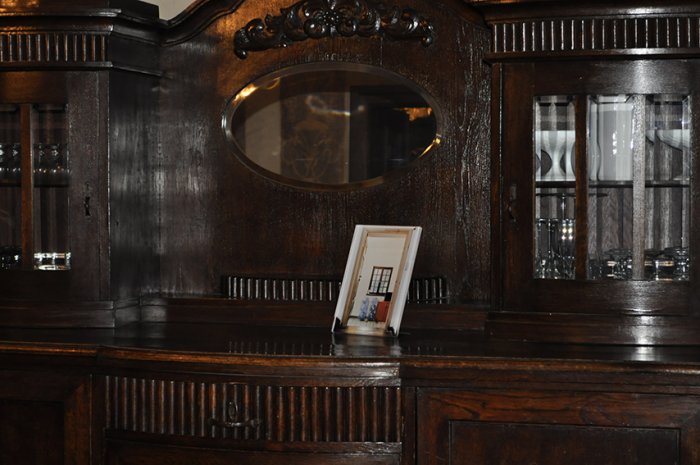Binoculars
The Binoculars is about looking, watching and perception. People can use it, not just see it. It is a retreat from the visual which gives you the opportunity to experience. It is intimate, not very showy; it merges with reality.The paradox lies in the fact that the two peepholes in the disassembled doors, which I call the binoculars, cannot be used as binoculars. They don't provide a closer view of what is hidden behind the door; they let us merely experience it in a fragment, distorted by the optical device. Watching what is behind the door is possible only by using each eye separately, and then the fragments have to be pieced together. Behind the door which I have chosen, there is a place inaccessible to outsiders. Standing on its doorstep, I was able to see, at a glance, the simplicity of the complexities of the history and architecture of the place.
The Binoculars is not about binoculars at all, and does not bring closer what is far away. It only shows a fragment of a deformed story. I think that honestly told history is just like that: always fragmentary, subjective and deformed and also cut down to the needs of the story itself. History, as we see it, is always an interpretation, and this is what The Binoculars is about. The door with eyes also balances the burden of history hanging above this city house and becomes an "observer" of what the future brings. I will show the picture of the room, in the room on the floor below called "the bourgeois room", but this is an entirely different story.



